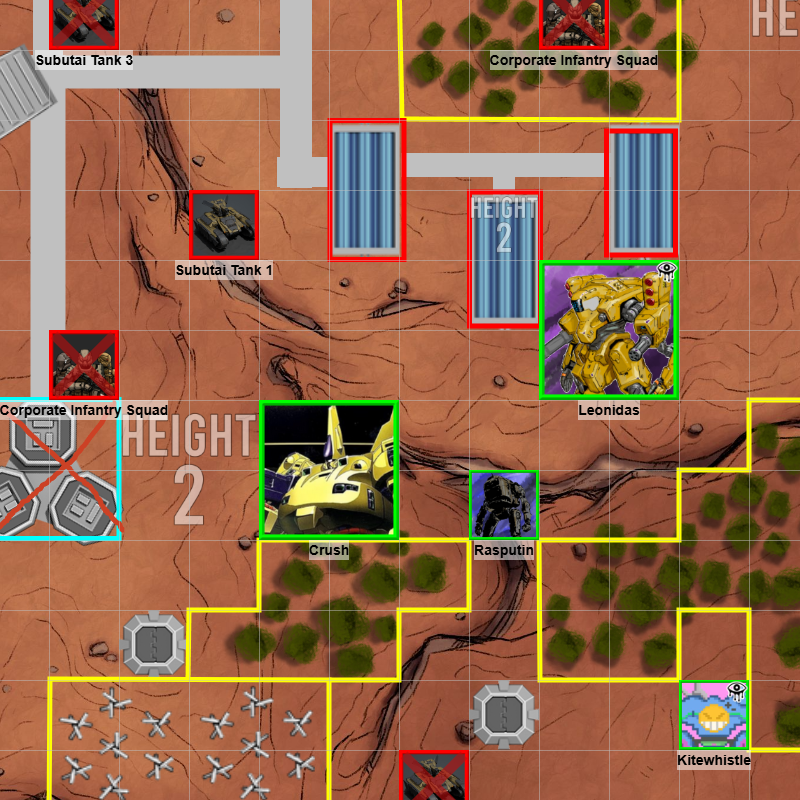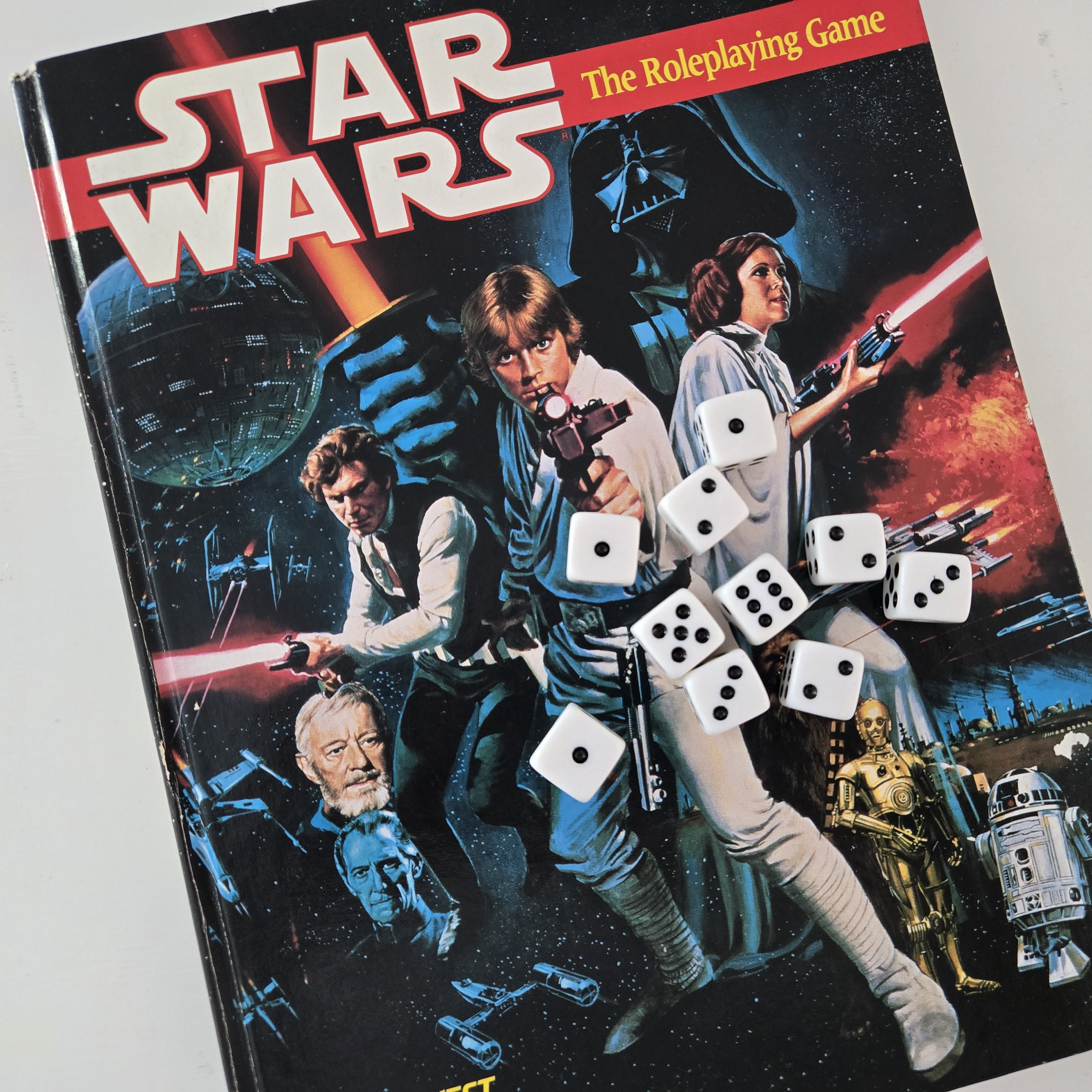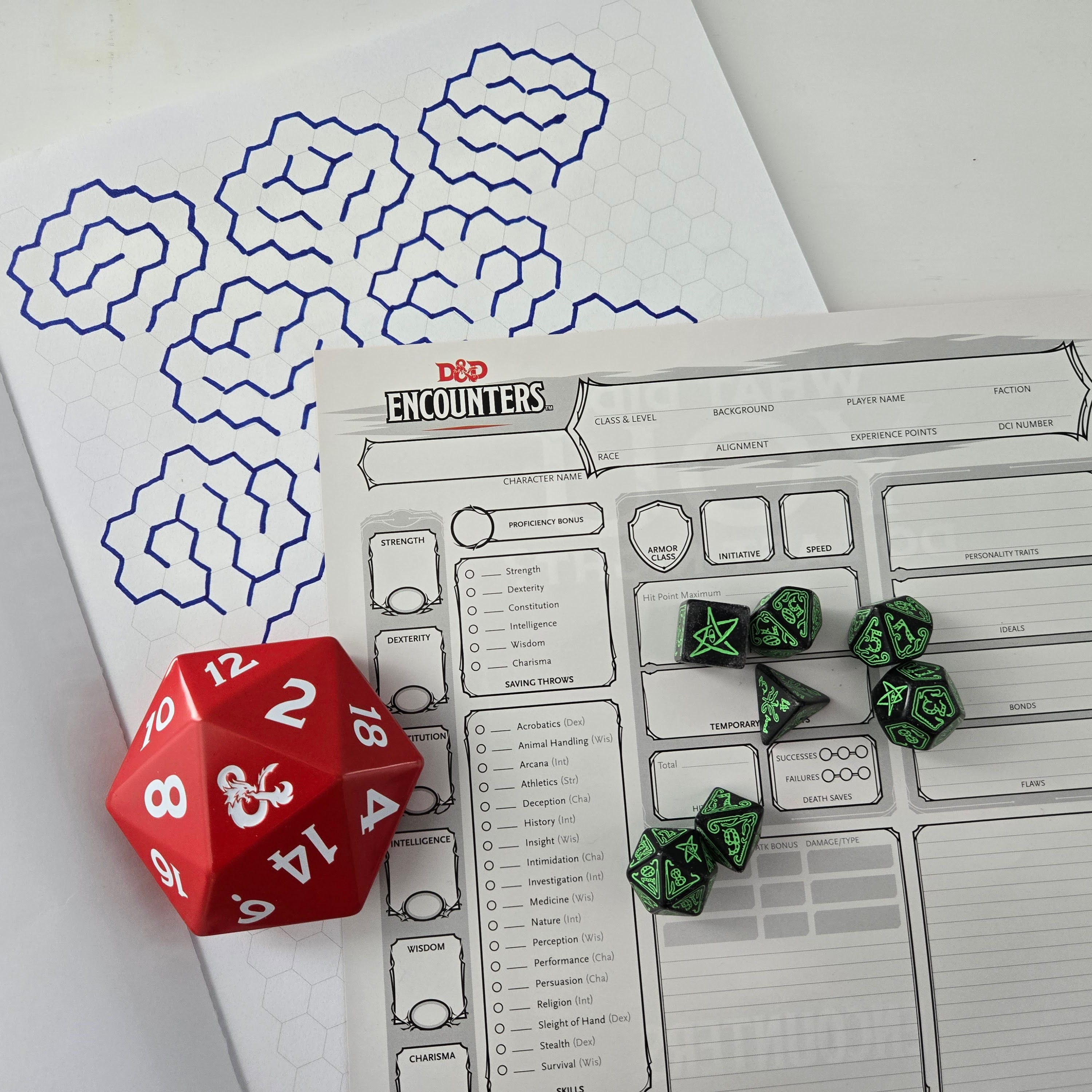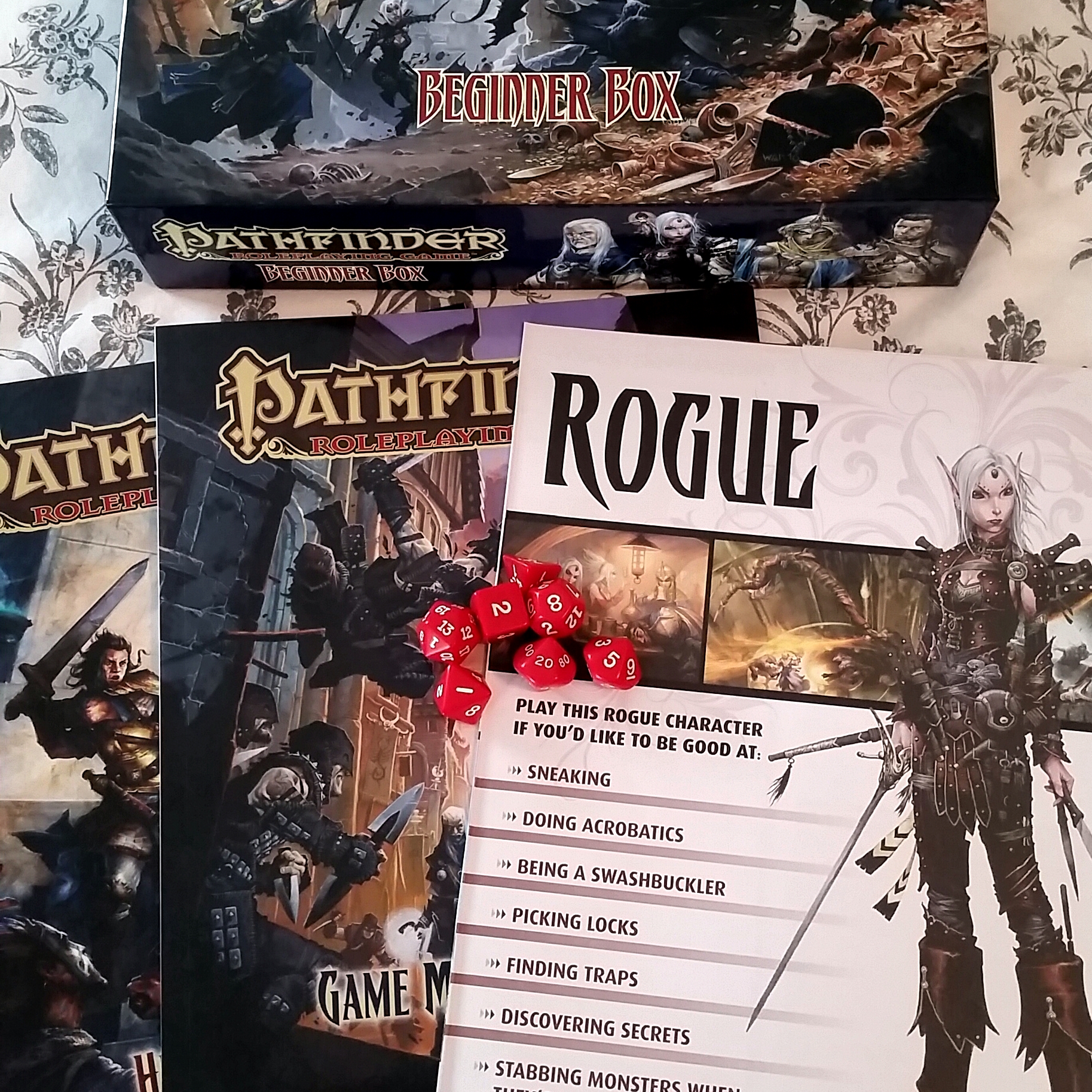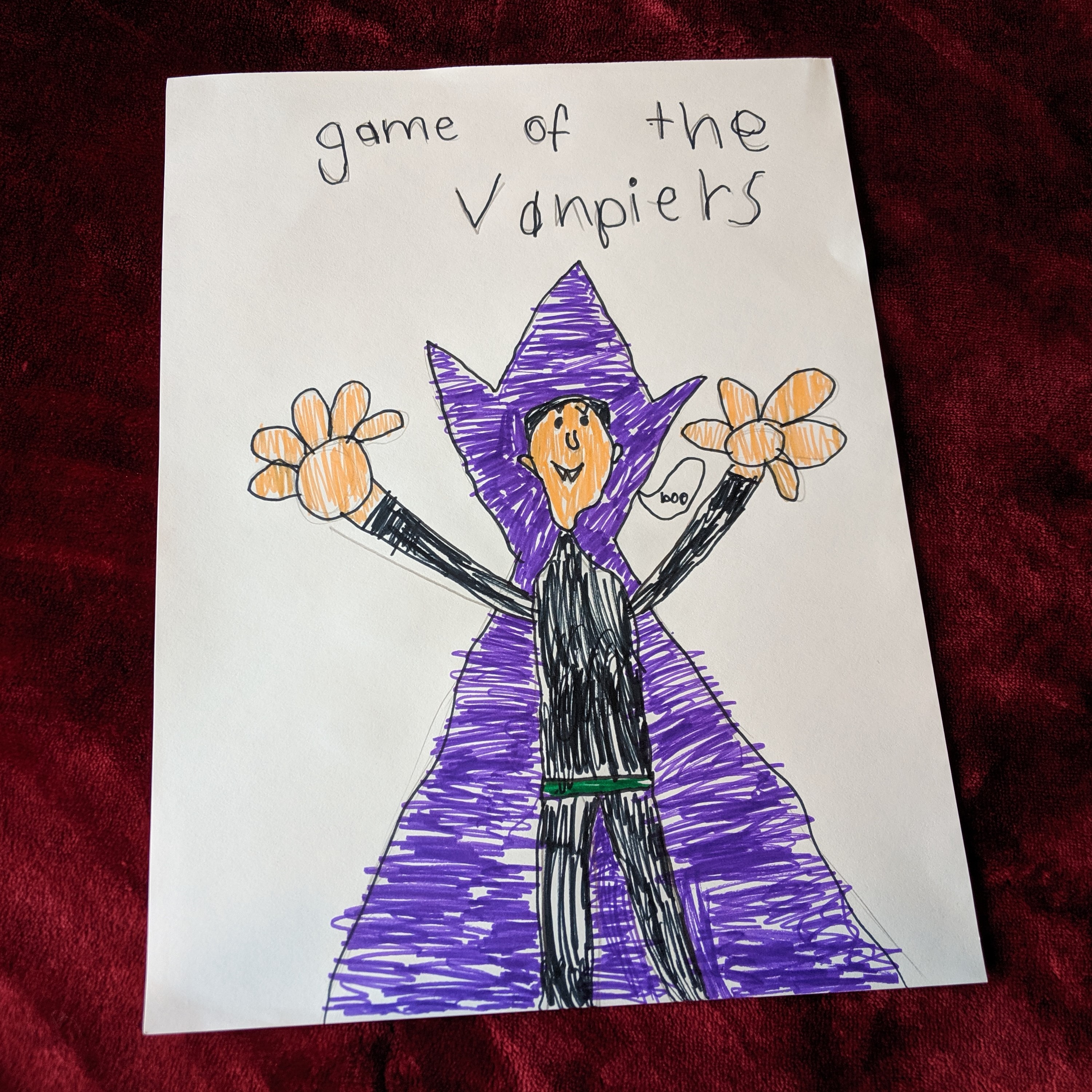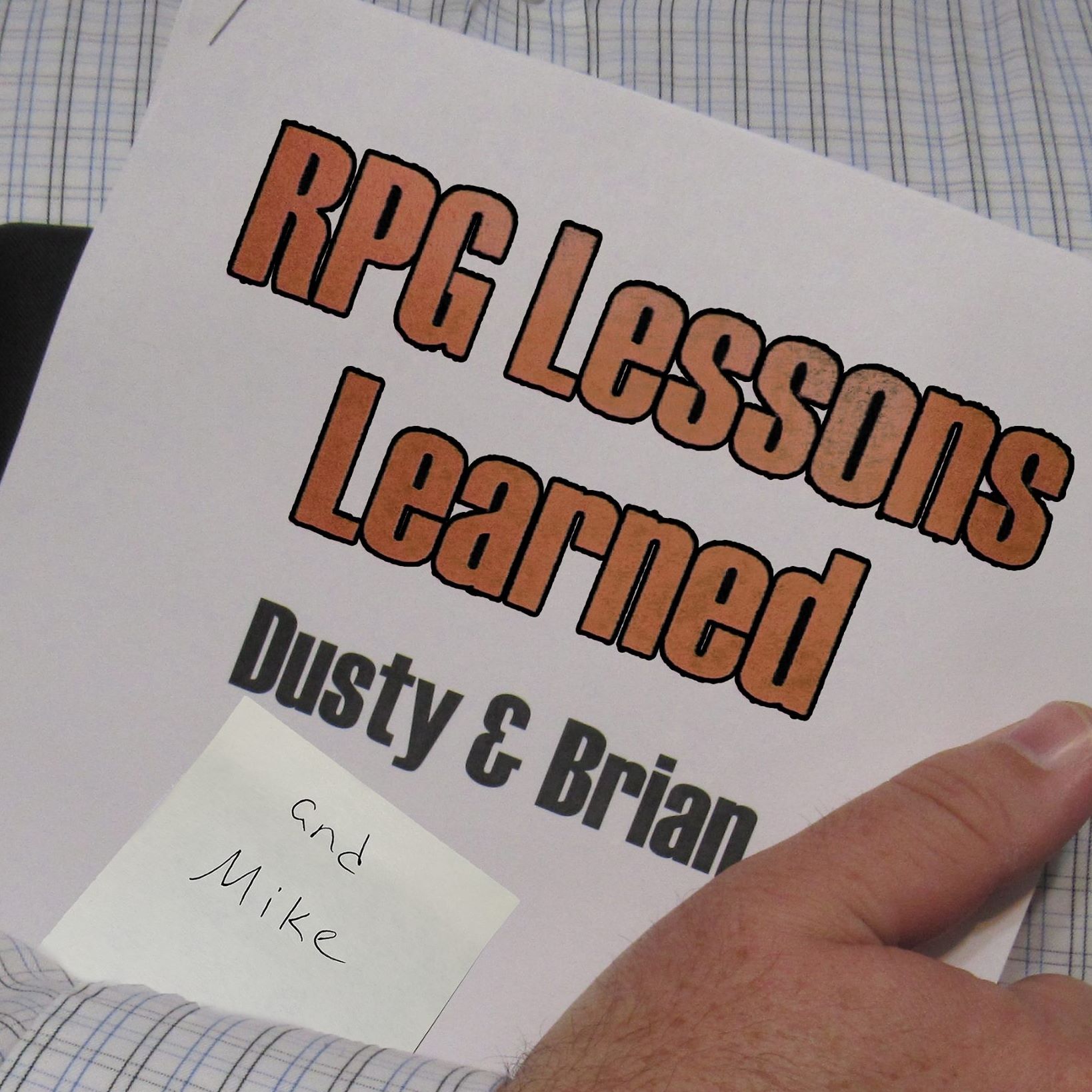[00:00:00] Speaker A: RPG Lessons Learned. When the game is over, when your players are gone, that's when lessons are learned.
Find us
[email protected].
email us at rpgllpodcastmail.com and find us on BlueSkyPGL.
Hi, welcome to RPG Lessons Learned, the show where you can learn from our mistakes. I'm Dusty and with me, as usual, is Tanner. Hi, Tanner. Boom.
[00:00:33] Speaker B: Um, I'm trying a new catchphrase. I don't know if it's going to catch on, though.
[00:00:37] Speaker A: I dig it. Let's see if we can get all the kids on board.
[00:00:39] Speaker B: Yeah. Dusty, we are here to talk about a very cool game. Um, we kind of talked about it a couple episodes ago at this point that I was going to get set up for running a game of Lancer with my friends, the mech RPG by Massive Press.
And Dusty, I've been running it and.
[00:00:56] Speaker A: My overriding question for you and we can work our way into this. I know Lancer is like a mech game, but I also know it's based on 4E and I'm desperately curious about how long combat takes.
[00:01:10] Speaker B: One combat per session, three and a half hours long.
[00:01:16] Speaker A: That sounds, um, like the 4E that I know and love.
[00:01:19] Speaker B: So I have some asterisks for that. First off, you know, we usually save our lessons learned from the end, but I want to start one. I want to throw one out.
I started a new group for this. Not all with existing friends, but this is like our first time playing role playing games together.
Lesson learned. Number one, before you do anything, decide on scheduling first. We decided bi weekly Tuesday nights, every other Tuesday night. And we set that ahead of time. And before I did any work. Don't get your hopes up because if you don't have a good schedule, your game is going to fall apart. That's what kills games 100%. So lesson learned. Number one. To start with, schedule your games first and then get excited about what you want to play. Thank you to all my friends.
[00:02:01] Speaker A: Yeah, so I gather the scheduling is working out.
[00:02:04] Speaker B: We've had, I think six or seven sessions so far.
Um, we started about a month and a half ago. So. Yeah, that or no, I guess that'd be a little bit more. Yeah, a couple months ago. So we started with a pre, uh, made adventure by Kai Cave. I'm not sure if I'm pronouncing that name correctly. I apologize. But it is called Operation Solstice Rain and it's designed explicitly to be an intro to the system for both players and GMs. It's a series of like six encounters and they step up the complexity and the rules and everything like that. Um, and it was cool. I don't love it. I like it. I don't love it. And we can kind of talk about the adventure in detail if you want. But yeah, let's talk about combat. So you kind of alluded to 4e combat taking a long time, right?
[00:02:57] Speaker A: I did.
I didn't allude to it. I made direct reference to it.
[00:03:02] Speaker B: Yeah. Um, the problem with 4e that I understand that they fixed with the Essentials line is that enemies had too much HP and did too little damage.
This game does not have that problem.
Combat is long for different reasons. So in uh, Lancer, normally your damage dice are going to be like a D6 or a D3.
Enemies generally have like 10 HP, maybe 8 if they're a lighter mech, maybe like 15 if they're a heavy mech. Maybe a point of armor of like damage reduction. But like, most enemies will go down in like two to three hits, which I think is good.
My problem is that the way this game designed encounters is that it basically constructing an adventuring party to fight my party for every encounter.
So there would be five or six mechs on the field and they each fulfilled a different role and they each had five or six different abilities that I had to kind of tactically think through.
So like you would have your 4e equivalent of like a striker and a controller and a defender. Defender and a tank.
But the object of the encounters was, except for the last encounter, was never kill everybody. It is accomplish a goal. And that is cool.
The thing that took the longest was bouncing between all these NPC profiles and like having to under like rock first off being like, okay, this character can move characters and this character can damage characters when they get moved. And if I move them here, like I was playing, it felt like I was playing 4D and D4E characters.
[00:04:44] Speaker A: That is what took so long about 4D combat. The thing about had uh, too many hit points and did not enough damage. I don't know if you've read that online or if you're alluding to a comment that I made last time we talked about how I had to make combat reasonable double, uh, monsters damage and half their hit points.
And that's, that's, that's a modification I did it's thing. It's a thing I read online too as a, as a recommendation. But I don't know.
[00:05:08] Speaker B: I did not hear it from you for the first time. I had Read that before. So got it.
[00:05:13] Speaker A: To me, what was wrong with 4e combat systematically is that you're right because of the roles. Um, it made the monsters. Like you said, you're playing four monsters that are just as complex as four PCs. And I can't tell you, in 4e, like, I'm trying to do all the DM things, keep players engaged, keep players interested. Remember to add flavor text, remember to not just say, he. He rolls 21, he hits you, you take four points of damage. Like, I've got to make it. I've got to narrate and make it dramatic and at the same time manage to your point, the controllers, the strikers, the brutes, etc. It was just too much. It was just too much for the dm.
[00:05:49] Speaker B: Yeah, I ran five combats like that.
And so we've. We've actually had six sessions of Lancer, I figured out. So we had five sessions of one combat apiece.
And then after this adventure, I've since started running my own adventures. And our combat, the way that I design the encounters has gone, like, down by half. It's like 50% as long as it was.
And I asked my players, I'm like, is this preferable? And they're all like, yeah. I still feel like it's tactical. I still feel like it's really hard.
Which I do love about 4E and Lancer of like, I, as the DM, I'm playing to win. Like, the players have so many resources at their disposal that, like, I think we've talked about before in designing adventures or dungeons, like, put a player in an interesting situation and let them figure their way out of it. I'm doing that with mechanics now, which I think is really cool. Of like, yeah, this NPC will one shot you. If you don't do something, what do you want to do? And then, that's awesome. That's awesome moment for the player. There's a lot of really cool, um, uh, powers that some of the enemy mechs have where it's like, either your mech takes a bunch of heat and damage, or I get to move you where I want to move you. Which do you pick? Player? And they're always like, I ain't moving where you want to move me. So. And, like, that makes me feel good because it makes me really feel like I'm not pulling punches. Like, this game is so mechanically designed well that, like, I can really throw not like an overwhelming amount of stuff, but I can play quote, M unquote, um, mean. And my players will figure it out, which is an awesome feeling.
[00:07:31] Speaker A: So don't bury the lead. What. What is the modification that you made to combat in your adventure versus the pre written?
[00:07:37] Speaker B: I am using a lot of Minions now. We kind of talked about Minions, uh, before, but in 4e, the way that it works is that everybody on the at the table knows which monsters are minions, and they're exactly the same, except they have one hp.
So a, it feels awesome to kill bunches of them or kill a minion on your turn with a single action.
There are weapons in Lancer that do damage even when they miss. Like, they'll do a minimum amount of damage. And it's awesome because I have one player who uses that weapon and they're like, yeah, um, I'm gonna spend one action and kill this guy, and one action and kill this guy. I don't even need to roll. And like, that's awesome. It speeds things up because I don't need to be tracking HP for all these different guys. And yeah, it's great. So that's one. One change. I made the second change that I'm using fewer enemy types. My goal is to never use more than three enemy types. So, like, for example, in a homebrew, uh, mission that we had, um, the last mission, they were fighting on top of their own starship as they were hurtling through space.
And basically some bad guys had deployed a hacking beacon at the front of the starship and they started at the back. Their goal was to destroy the hacking beacon. So I had annoying flying minions who would fly around, but only had one hp. I had two big brutes blocking the path and one really strong sniper at the back. And so when you have six different enemies, it's. It can be really hard to like, make priority decisions of like, who are we supposed to target here? Like, who is the biggest threat? Like, part of that is fun, like the strategy of coming up with that, but at a certain point your brain can only retain so much information. So like having Sniper, big guy, flying guy, like, that's so much easier for players to be able to grok and move on. And I'm hoping that that maintains its momentum of, like, still being tactically interesting. But yeah, that's. That's basically what I've been doing so far.
[00:09:40] Speaker A: Let's talk about both those in order. Minions.
I don't know what I've said in the past. Um, I hope this is the consistent message with what I've said in the past. I love Minions.
[00:09:48] Speaker B: Yeah.
[00:09:49] Speaker A: The primary complaint I saw about Minions online, people Being like, minions are broken. If I deploy a level 30 listener at home before you're surprised at level 30, that was a real level in 4e.
If I deploy a level 30 minion against my players at level 1, and then the wizard uses Magic Missile, which always hits and he kills it, they're going to get like a ridiculous number of XP and immediately level to like level three. And my answer is always, well, yeah, that's why you don't do that.
Just don't do that. Just don't deploy a level 30 minion. Like, yeah, it's not that level 30 minions exist in the world.
Level 30 minions exist in that moment in that combat where if you encounter them as a level 4, that level 30 minion is not really a minion anymore. You're not going to present them as a minion at the table.
But when you're level 30, level 30 minion makes sense.
[00:10:45] Speaker B: That, um, understanding, I think, is like a, uh, fundamental misunderstanding of how, like, it's not like there's a society of level 30 people going around and doing things. This isn't like a World of warcraft where like two zones over there are just bores that are 50 levels higher than you. Like, you're presenting characters for that moment, for that encounter. And I think a lot of people, um, actually about that, and I think they're being dishonest so and so's about that because I think that they know that, like, there's not a society of level 30 kobolds going around. There is a level 30 kobold minion in this level 30 adventure for your players.
[00:11:24] Speaker A: And outside of lit RPG, no level 1 wizard is going on a quest to find a level 30 minion that they can one shot to immediately get to be level five.
[00:11:34] Speaker B: Yeah, it's like we're playing the game, like, engage with the mechanic. I built the sandbox. Playing the space with it, uh, requires some common understanding and common sense. But common sense isn't all the time, you know, so, yeah, so I love.
[00:11:47] Speaker A: Minions is where I'm going. So I applaud you there.
Um, using limited numbers of enemy types makes total sense. That's game changer. Um, how fun would it be to see what, like three controllers and like, if you don't want to have brutes or snipers or whatever, like a hazardous map. Yeah, with three controllers that could be like, if they freeze you in place and every other turn a lava flow runs through there or whatever. Yeah, that, that furnace activates every five turns and they freeze you in place. Like that's interesting.
[00:12:25] Speaker B: Yeah, there are a lot of, um, enemy types in Lancer that are like, they specifically create hazardous areas. Like, that's their thing of, like, I create a big pile, like a big cloud of incendiary smoke, or I shoot cones of fire, or I lay minefields, stuff like that. So, like, once you do that and then you have controllers that can move people or push people. Yeah, it's awesome. So, yeah, I'm still learning. Encounters and combat should be the star of the show for these types of games.
However, I have a hard time thinking of good reasons to get them in, like, an encounter that I plan. You know what I mean?
Like, my first, uh, session of running my own stuff was very on rails, but I kind of want to slowly start letting them steer the plot a little bit more. And I'm just a little bit concerned because you and I have developed. We talked about this at length. Like, we've developed cool tools for improvising stuff in OSR games.
Um, monster reaction roles, wandering monster tables, that kind of stuff. It's so easy to improvise, um, a, uh, quick encounter in an OSR game. And it is not easy to improvise, like a balanced tactical combat on an interesting map. So I don't know what I'm going to do about that.
Is the solution to prepare, like five encounters to have in my back pocket to be dropped anywhere? I don't know.
[00:13:54] Speaker A: Is the solution to find a copy of the famous 4e book, Dungeon Delve?
There's three encounters for every level of play, one through 30, so a total of 90 encounters. And then figure out how to turn those 4e monsters into Lancers.
[00:14:12] Speaker B: I would love if Lancer had a book like that. That would be sick. They should put one out if you're listening. Massive. Um, yeah. So that's still tbd. Um, my players are playing very cool characters that I really like. They are doing cool stuff. They're working for cool people. But so, like, they're working basically for this faction called the Volidores, who are humans. There are no, like, sentient aliens in Lancer. It's all humans in space, but they're like weird trans humans from M. Beyond the unknown reaches of space.
And they're merchants and they only do business in person, which is very cool for a sci fi thing. And they buy and sell rare tech and stuff like that. So, like, my players are bodyguards and enforcers for this basically wandering star merchant. So, like, I'm trying to think of situations to like, get them into combat all the time. That aren't just like, your boss is being robbed. Your boss wants this thing and other people want it too. You know what I mean?
[00:15:18] Speaker A: And BattleTech, the easy solution would be you're a mercenary company and you're going to run out of money if you don't take missions.
[00:15:25] Speaker B: Yes. So, but Lancer is very interesting in that the default setting is a post scarcity world. If you live in union, which is also. I just put that together. I'm like, oh, they called them union, not the, the alliance, they called them union. A very interesting political word to use for that. Um, but the default assumption is that like everybody has human rights.
You get all of your needs met, you can 3D print anything.
So then it becomes about your character's convictions for why they want to do things.
And a post scarcity society doesn't mean that you can print a yacht and be on a yacht. It means that like the floor has been raised. You know, you're not hungry, you have shelter and you have basic social services. So like, okay, thinking of like how many conflicts and combats arise from not having those, like suddenly, once those are the baseline, it's interesting. And the game specifically doesn't have a money system because of that. It's like your, your players have what they need. So figuring out ways to motivate them, um, that isn't treasure and gold is kind of tough.
[00:16:35] Speaker A: That's interesting. So 40.
I always struggled with uh, the role play mechanics. Now I mean obviously role plays, role play, it's improv, making up lines and going back and forth, that's fine. But the Mechanics where in 4e, it was like perception check followed by persuasion check. And if that doesn't work, let's get heavy and go for the intimidate check. Like your, your, your resources for quote unquote social combat were pretty narrow. Mhm. How do you, how is it in Lancer, did they address that? About 4e?
[00:17:08] Speaker B: I would say yes, that is a huge step up. So the game has what are called triggers, and those are bonuses that you get on a D20 roll to accomplish, uh, something. And the target number is always 10.
So your players almost always have a 50, 50 chance of succeeding anything they do. Which is very cool and very interesting. So like, if your player is like, I'm being uh, ambushed by gang members, I want to pull out my pistol and go pow, pow, pow, like Han Solo and shoot them all. Okay, you rolled a uh, 15. You do it, we move on. And like that's cool, that's fast, that's Kinetic. That's interesting. But the skills or triggers are more like things almost like aspects from fate. They kind of feel like where one of my players, he's a noble from a long line of, like, medieval noble houses, and one of his triggers is, do you know who I am?
So if he can justify it to me of saying, I'm going to use do you know who I am in this moment, yeah, sure. You can get plus four on this. And that drives the roleplay because it's so. It's so much.
It opens the door so much to player expression, and it's not. I'm rolling intimidate. I'm pushing the intimidate button on my character's control panel. It's like I want to weave in. Does this guy know who I am? Into the conversation? So I say, okay, what do you say? And then they reroll it and we see what happens. So, like, that is very cool.
[00:18:36] Speaker A: I love that. That gives each character shtick, where if your campaign were to get turned into a TV series, each character would have, like, a tagline and a shtick. And like, I think of the show Leverage, where Elliot's always, like, recognizing stuff, and everyone's like, how do you recognize that? And he's like, oh, it's a very specific whatever. Whatever. Like the whole. It's a very specific thing as a catchphrase. Bazinga's a catch. Like, yeah, I love that it gives the players a shtick. That would be a through line for characters in a sitcom.
[00:19:09] Speaker B: Yeah, my. I'm pulling up. We're playing this all digitally, by the way. I don't think I mentioned that, but we're all on roll 20. My. One of my players, his character is named is the Blind, and his triggers are threaten, lead, or inspire. Read a situation or survive.
So, like, we, you know, like, we talk about what of those triggers, if any, would apply to, you know, the situation. And then we. Then we roll with it. So I don't know. It's cool. It's, um. It's very fast, and it feels like it's meant to get you from. To back to the combat.
[00:19:45] Speaker A: So let's look at the COVID of the adventure that you're running. I see what looked to me like very clearly Zaku Twos. They're green, They've got one red eye, they've got shields. Like, those are Zaku's, as Zaku can be. But the good guys don't, uh, qu. Look like Gundams. They look like Transformers.
Like, none of this looks like Battletech. Of all the big mecha systems that you're aware of, what is the default setting most closely resemble?
[00:20:14] Speaker B: That's a great question. And it's, it's a thing that the game talks about too. So when you're building a character, you pick mechs from one of four manufacturers.
And those manufacturers are each kind of like their own genre of Mecca.
And these manufacturers exist as like corporate states in the world too. So like, manufacturers like IPSN and Harrison Armory are like Battletech or Robotech. They're like big utilitarian, functional walking tanks, killing machines. There's another manufacturer called the Smith Shimano Corporation, or ssc, and they're Gundams. They like, they have mechs that fight with laser swords and they're all super mobile and they look angular and anime and very cool. There's another manufacturer called Horus, um, like the God Horus. And they only exist online in like blink space. And they're like weird transhumanist meme makers and like, nobody knows. Like, they're the people who today are like 3D printing guns and stuff like that. Like, Horus is not like a. The. It's like the Dark Web or whatever. And so like, you're finding your licenses for these mechs and they're all very weird and like, deal with like hive stuff. So that stuff is kind of like the more edgy, like modern, modern anime. So, you know, it kind of is a big tent setting. I find that the stories that I'm interested in telling are kind of the Gundam stories of like, big political powers against one another.
A little space opera, but not quite. And like, the setting is so big that like pretty much any sci fi world you imagine can exist in it.
So they're about to stumble upon a religious uprising on a former medieval level technology world. And like having to deal with how does a oppressed religion deal with a monarchy and how does a monarchy deal with that? You know, And I'm, I'm weaving in all sorts of really, um, fun ideas from sci fi that I really like.
There's a really cool story called Blitz. It's a short story and it was published in the 80s, late 80s, and it introduces this idea that there are images that can be reproduced that contain patterns that exploit the human mind into dying. And they're called Basilisks. And so in this short story, this is a thing that graffiti artists use as a terrorist attack. They'll put it on a wall and anybody who looks at it, it will short circuit their brain and kill them. Like a computer virus would do to a computer, except it's an image that you see. It's a very cool story. And so my current thing is that this noble house wants to talk to the Volidoras and buy a basilisk from them to use on their enemies. So like a holographic projection that they can put in undesirable areas that will just kill anybody who sees it. And so like, having my players grapple with like war that is Blurs the line between like civilian and combatant and stuff like that, which Gundam often did in some of the better series. Um, but Gundam has been all over the place too. You know, like they've, they've told melodrama and they've told very grounded war stories too. So. Yeah, I mean, this is a very long way to say that. Like, I'm using this as like a kitchen sink exploration of all of my favorite sci fi things, but also like telling a story that feels grounded and interesting though.
[00:23:59] Speaker A: My very favorite. Well, sorry, let me back up a couple things. Number one, because of these basilisks, these images that kill you, one of my triggers just became colorblind.
[00:24:12] Speaker B: There you go. You can invoke that. You can try.
[00:24:16] Speaker A: Um, and then you're right. Gundam has been all over the place. My favorite Gundam series, Mobile Suit G Gundam.
[00:24:23] Speaker B: Oh, G Gundam.
[00:24:25] Speaker A: Mobile Suit G Gundam. Um, Domin Kashu. The whole idea of Gundams coming back from the colonies to like duke it out in sort of American Gladiator style games.
[00:24:35] Speaker B: Yeah, that's cool. And like, Lancer does talk about that. They're like, there are some worlds where mechs only exist to be in judicial gladiator duels and stuff like that. So my favorite Gundam is, is the only one I've seen all the way through too, I should add is, um, eighth Ms. Team, which is basically like if you took the movie Platoon and made it Gundam. Yeah, I like that more like kind of on the ground, like. And I try to, I'm trying to get those themes across to the players. It is hard though because like, the game is about having fun, being a big robot and blowing stuff up. But at the same time I want to like emphasize that like other NPCs see Lancers as like death dealers. Like that machine that's 60ft tall that is bristling with machine guns and missiles and laser beams. Like that doesn't exist to build schools. That does not exist to build bridges and roads. It exists to do violence against state or non state actors. And so that's a theme that I kind of want to introduce without making them like feel bad about it, you know, of like, ho, ho, I'm so smart. But like, consider what it is you are doing.
[00:25:44] Speaker A: How does this campaign end? And I'm not saying like, you know, ruin the campaign for your players who may have been listening. I'm saying what's the crescendo that you're. That you're. That you build to in a campaign about mech combat?
[00:25:57] Speaker B: It's a great question. And I don't know yet.
Um, my players have each given me a list of like something long term that they want to accomplish.
So Lucan Ktor is from House Ktor and he's the one who wants to either.
His house is very backwards and medieval by galactic standards. So he wants to redeem the nature of his house, whether that means bringing it up to speed or wiping it out and starting anew. I have another player named Petra and they want to. They're like a farm purse, a farmhand from a distant moon, and they want to bring like glory and money back to their community. I have two players who are each playing kind of like technophile characters and they want to merge with an NHP or an AI as they're. They're called. NHPs and Lance are a non human person because they are a person. It's interesting.
One of my players wants to merge with one of those and like sees it as like a religious. Like this is the next step in human spiritual evolution and stuff. So I got to braid all those together somehow. Dusty. So if you have any cool ideas, hit me up.
[00:27:05] Speaker A: All right, I'll think about it. Any additional lessons that you've learned running Lancer, running tabletop combat remotely in. Would you say it was roll 20?
[00:27:16] Speaker B: Roll 20? Yeah. Um, one thing that's very cool about Lancer and I, I would love to kind of port this into a different game. And I'd love to pick your brain about it another time maybe. Is that in Lancer you can scan an enemy as an action and I give the players that enemy stat block.
[00:27:34] Speaker A: There was a thing like that for 4A. I forget what it was called, but one of my players for sure had that. It might have been a thing that Warlords had.
[00:27:42] Speaker B: Uh, yeah, that sounds right. Like Rangers had or something like that.
[00:27:45] Speaker A: Yes.
[00:27:46] Speaker B: Yeah, but in Lancer, that's an action anybody can take. So like, part of combat is being like, I don't know what this is. Let's take a look at it, group, and we'll do a quick huddle and we say, oh, God, this can do this and this can do this. This has to be our priority. So I would love to give players more information. Okay, so let's, let's do our lessons learned. Number one, like we said, schedule your game before you run it. I don't know why it's taken me 30 years of my life to learn that lesson.
We put the cart before the horse.
Two, make your combats run faster by reducing the number of variables. I would say, would you sum that up in a different way of like kind of consolidating enemy types, keeping everything more understandable.
[00:28:29] Speaker A: It reminds me of the super old episode of the show where we referred to the book the goal, the constraint, the limiting factor on a game like this is the gm.
So anything you can do to take mental load or frankly any load off the GM benefits the throughput of the game.
[00:28:49] Speaker B: That was a good episode. I liked that episode. I remember that one. I listened to your whole show. Dusty, I'm kind of your biggest fan. Um, and then lesson learned number three, give your players information in a tactical game or make them earn it or make them spend resources to get it because it enriches the tactics of the game to know what the enemy is capable of and knowing what this thing in the environment does and all that kind of stuff like surprises can be fun. But like the fun of chess is that I know what the bishop and the knight can do. This is the situation I'm in. How do I get out of it?
[00:29:25] Speaker A: That's fair. I like that.
[00:29:26] Speaker B: I the setting a lot of this in this. So hopefully I didn't talk too much. But I do think it's a, it's a very cool game. I'm liking it more now that we're out of this pre written adventure. We don't really talk about the pre written adventure very much. It's cool, it's interesting. I liked it. I didn't love it. I'm glad that it served us up to tell our own stories now.
Um, but I am liking the game despite my quibbles with it. I don't know if I came out sounding positive on the game.
[00:29:53] Speaker A: I had a really hard time with 4e pre written adventures because they were walls of text and then the best parts of the adventure were the encounters and the map anyway.
So for me with 4e adventures it's like dude, just give me the encounters and give me a map and I'm good.
Yeah.
[00:30:10] Speaker B: And you can kind of string those together yourself obviously.
[00:30:13] Speaker A: Yep.
[00:30:14] Speaker B: All right, well, yeah, I'll, I'll keep you updated as we play. Um, I think we're maybe a half to a third of the way through the campaign, so I'd love to check in again when we're getting near the end of it. And we can, uh. I can give you a more holistic look on the. On the system in our game.
[00:30:28] Speaker A: I look forward to it. And I might pick up a copy of Lancer. No affiliation. Thank you for listening.
People call them reviews, postmortems, retrospectives.
We call them lessons learned, and we're sharing ours with you.
